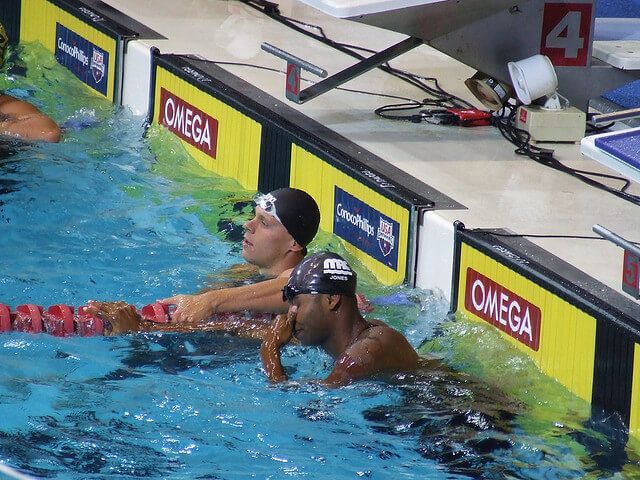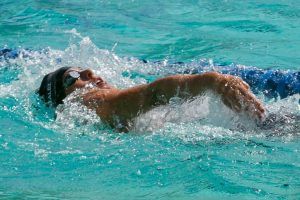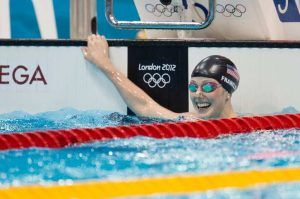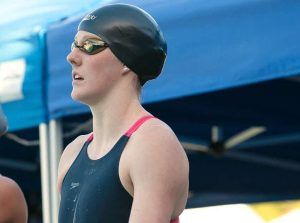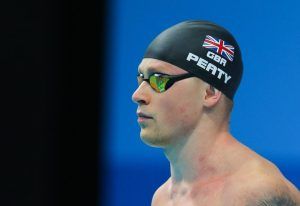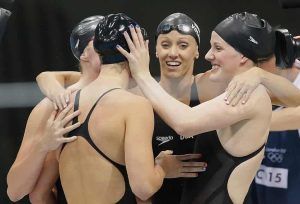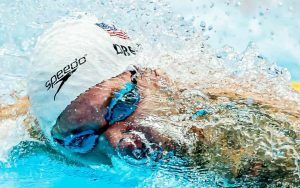“I panicked,” said Cullen Jones, the 6’5 sprinter still dripping.
It was moments after the 50 meter freestyle final at the 2008 United States Olympic Trials, and Jones, a favorite to qualify for the American team going to the Olympics later that summer in the event, had placed a disappointing 3rd.
His assessment of the race?
He had come unnerved, spun out his wheels, so to speak. As a result, he wouldn’t be swimming the event in Beijing later that summer.
Jones had succumbed to the pressure in an event that is probably more high strung than most—the splash and dash that covers the length of the pool in a thunderous, white-washed 22 seconds.
But as most competitive athletes full well know, you don’t need to be trying to qualify for the Olympic team in a pressure-cooker of an event like the 50 to be crippled by the pressure and anxiety that comes with trying to perform at your best.
Getting Lost in the Externals
Even though we aren’t all chasing down an international podium, Jones’ experience probably feels familiar.
From getting psyched out by the crowds and noise, to overly focusing on the competition, to over analyzing every aspect of how we feel getting behind the blocks, the experience is all too common.
So what we can do corral the anxiety and pressure that surges up as we stand up to race? And what can we do to keep ourselves focused on our own performance instead of that of our competitors during the race?
Create an Anchor
One way to stay calm and relaxed is to create a set of cues for your race.
Before your next big race sit down for a few minutes and write out the various aspects of your race and how you’re going to execute them. With each stage of your race attach how you want to perform and feel.
Identify the scenarios where you are most likely to get flustered (or where you have struggled to keep focus in the past) and put together some cue statements to fall back on so that you stick to your race plan. (To anticipate a question: No, you shouldn’t base your cue statements on what anyone else is doing. For example, “Be one body length ahead of the field,” is not a helpful cue statement.)
Here are a few examples:
- If you know that you are going to be tense and over-excited at the beginning of a race, string together a couple cue words like, “Long and strong” or “Fast and smooth!” to help you stay relaxed.
- If you typically catch yourself getting too jacked up behind the blocks, use a couple lines such as, “This is supposed to be fun!” and “This is what we do!” to help you stay calm and loose.
- When that last 50 comes along, and your legs and lungs are burning, and the swimmer in the lane next to you is roping you in, use statements such as, “It’s go time!” amd “I will not be outworked!” to help you power through.
Best Practices
Here are a couple tips in designing your own set of anchors:
Make your cue statements simple. Complicated and long doesn’t mean better. The more simple your statements, the more you can focus on it. Consider “loosey goosey” versus “stay long and relaxed and remember to breath deeply and keep calm.” Keep it simple.
Describe a feeling. Instead of thinking to yourself, “swim super fast with perfect technique” during your first 25m, use a couple keywords like, “relaxed speed” or “easy fast.” You shouldn’t have to think about the technical components of your swimming when it comes to race time (that is what is practice is for).
In Closing
Cue statements can act as a powerful anchor to stop your mind from running wild on you. They’ll ground those stress-inducing and confidence sapping thoughts and keep you dialed in on your performance and executing the game plan you have for your own race.
The next time you have a big meet coming up take a few moments and write out a small series of cue statements that you will use before and during your big race so that you swim with more focus, more confidence, and more awesome.
[divider type=”thin”]
Take Your Swimming to the Next Level
YourSwimBook is a log book and goal setting guide designed specifically for competitive swimmers. It includes a ten month log book,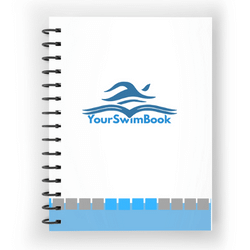
Learn 8 more reasons why this tool kicks butt now.
Join the YourSwimBook weekly newsletter and get motivational tips and more straight to your inbox. Sign up for free here.

